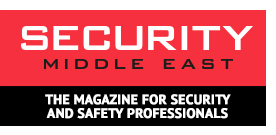20 May Infoblox’s State of Security report highlights remote work hazards in the UAE
DNS management and security provider Infoblox has unveiled a global report detailing the state of security across the world. The report covers security concerns, costs and procedures.
The survey covered 1,100 respondents in IT and cybersecurity roles in 11 countries; United States, Mexico, Brazil, United Kingdom, Germany, France, the Netherlands, Spain, United Arab Emirates, Australia, and Singapore.
For the UAE, the survey uncovered a surge in remote work that has hugely shaped how the corporate landscape is shaped. Currently 52% of organisations in the UAE have accelerated their IT to support remote work. Whilst networks have stepped up to support this type of work, the security is still lacking. The survey found that nearly half (44%)UAE respondents reported experiencing up to five IT security incidents in the past year.
Nearly three out of four (72%) said a breach resulted from the security incidents their organisation experienced. Successful attacks were likely to have originated from Wi-Fi access points (50%) and third parties (42%). The financial impact of attacks has been huge with 42% of organisations suffered up to US$1 million (AED$3.672 million) in both direct and indirect damages.
Phishings made up more than half (56%) of the threats for UAE companies with an advanced threat (APT) (50%), followed by ransomware (44%) as the next most serious attacks.
Mohammed Al-Moneer, Regional Director, Middle East, Turkey & Africa at Infoblox, said: “It is heartening to see from the survey that UAE enterprises are laying out bigger budgets towards IT security this year and are realising the importance of DNS security. DNS is becoming a more common target of network attacks. As one of the oldest and most relied-on protocols of the modern Internet, DNS is utilised by almost all other services and protocols, making DNS an appealing target to attackers. Solutions like Infoblox Advanced DNS Protection (ADP) effectively shields organisations from the widest range of DNS DDoS attacks, maintaining service uptime for the organisation.”
He added: “It is also encouraging to see growing interest from regional organisations in SASE frameworks that deliver integrated networking and security across a borderless enterprise from the cloud. SASE is undoubtedly the key to the future of networks and security.”
Providing further insight, Anthony James, VP of Product Marketing at Infoblox commented: “The pandemic shutdowns over the past two years have reshaped how companies around the world operate. Cloud-first networks and corresponding security controls went from nice-to-have features to business mainstays as organisations sent office workers to work from home. To address the spike in cyberattacks, security teams are turning to DNS security and zero trust models like SASE for a more proactive approach to protecting corporate data and remote devices.”

